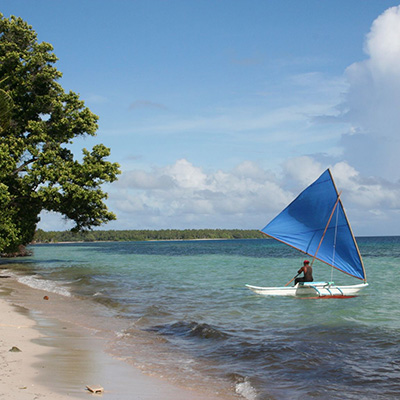Across more than 40 years as an archaeologist, UQ’s Professor Marshall Weisler has spent much of his life in some of the world’s most fascinating and untouched corners – isolated villages, an uninhabited island, and communities across Polynesia, Micronesia, Hawaii and New Zealand – all in the name of discovering what makes us human.
 On the eve of his retirement and ahead of his presentation for the 2022 Hall Lecture, Contact sat down with Professor Weisler to talk life ‘off the grid’ in the remote Pacific, his most exciting find, and why it’s important to learn from humanity’s ancient past.
On the eve of his retirement and ahead of his presentation for the 2022 Hall Lecture, Contact sat down with Professor Weisler to talk life ‘off the grid’ in the remote Pacific, his most exciting find, and why it’s important to learn from humanity’s ancient past.
‘You really just crave having a potato’
Professor Weisler recalls one of his most challenging expeditions as a 1990 trip to Henderson Island.
For 5 months, Professor Weisler and a motley crew of scientists – from archaeologists and biologists to entomologists and ornithologists – camped out on the uninhabited island as part of an international research project.
Henderson Island is part of the Pitcairn Island group, a tiny collection of islands sitting in the vast blue of the Pacific Ocean.
Uninhabited since colonisation by Polynesians between the 13th and 16th centuries, it is one of the few remaining atolls with an ecology relatively untouched by humans.
With no major land mass for 5000 kilometres – that’s more than the length of Australia – Henderson Island is about as isolated as you can get.
“We went to this island to research because it was thought to be ‘pristine’ – though of course, nowhere is pristine anymore,” Professor Weisler said.



